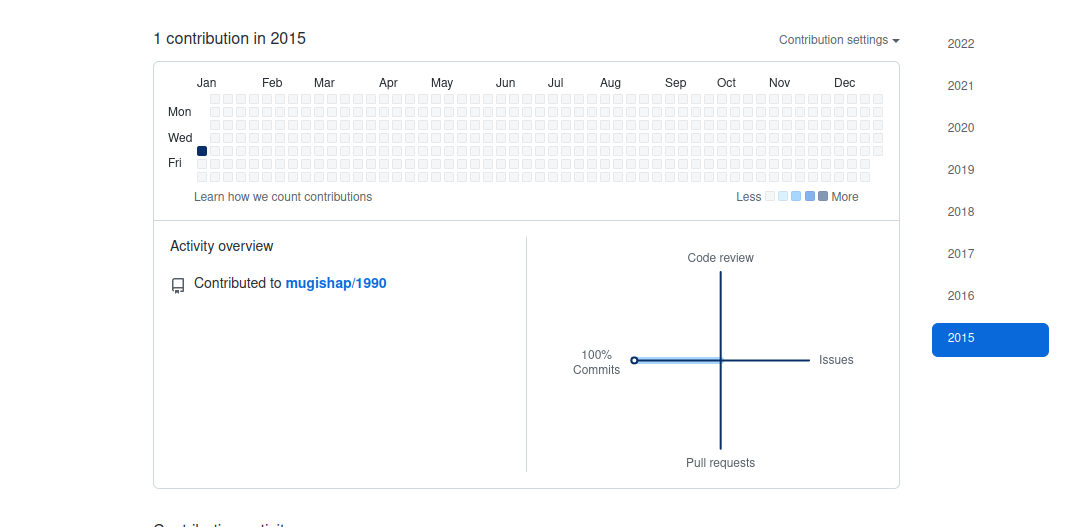Make your GitHub history back to any year.
Create a new repo named anything on GitHub.
Generate a personal access token on GitHub and copy it.
Run the following script
$ sh -c "$(curl -fsSL https://raw.githubusercontent.com/mugishap/commit-time-travel-machine/master/index.sh)"Enter Year, GitHub username, Github repo name, and access token and then you are done :)
This project works on the way git records commit. Whenever you commit something, git puts an Unix Timestamp on it to record when you committed it. An Unix Timestamp is the way computers store the current time. An Unix timestamp is a 32-bit number which stores the number of seconds that has passed from January 1st, 1970 at UTC, the Unix Epoch.
The script firstly creates a directory with the name of the wanted year - line 9 mkdir $YEAR
The script then initializes the directory as a git repository, using git init - line 12 git init
The script then stages all the files git add . and commits it, using the date {YEAR}-01-01T18:00:00 (line 16) or 6pm, 1st January, YEAR (default of the YEAR variable)
This is the ISO Date-Time format for storing time: YYYY-MM-DDTHH:MM:SS.
This commit is then pushed to GitHub (provided you already have made a repository) using git push -u origin main -f, and the directory is removed.
GitHub recognizes the commit to have been created at 6 pm, 1st January, YEAR and thus registers a contribution at that moment in time. If you scroll to the first year on your profile, you will see there is a single contribution to your REPO repository, on 1st January.
